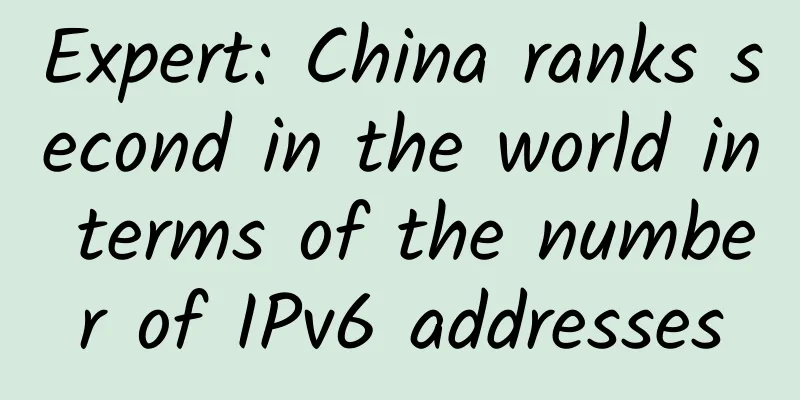From darling to outcast, is Huawei's 5G journey in the UK really over?

|
On July 14, with the announcements made by British Prime Minister Boris Johnson and Secretary of State for Digital, Culture, Media and Sport Oliver Dowden, Huawei's cooperation with the UK came to an end. According to the announcement, the UK has officially decided to ban its mobile operators from purchasing Huawei 5G equipment after 2020, and plans to remove all existing Huawei 5G equipment from the network by 2027.
Huawei was undoubtedly shocked and disappointed by the news. After all, Huawei and the UK have always been important partners. Although the UK is a bit "scumbag", Huawei always tries its best to maintain this "relationship". For example, when the UK was still hesitating, Huawei issued a letter of commitment to appeal to its emotions and announced an increase in investment to persuade it with money. It even released its first half performance to stabilize its morale. But obviously, the UK's determination to "sever ties" this time has declared that all these efforts have come to nothing. So, from close to disgust, why did the UK suddenly change its attitude and ignore the 20-year relationship? What impact will this move have on the UK and Huawei? At the same time, in the future, will Huawei and the UK have a chance to reconcile? Let's analyze it next. Once a favorite, now an outcast Back to 20 years ago, Huawei, which had been developing in Asia, Africa and Latin America, tried to knock on the door of developed countries for the first time, and the UK was its first choice. Before that, Chinese brands were not popular in the UK, but since a multi-million dollar order from the Russian telecommunications department in 2001, Huawei was deeply inspired and full of confidence, so it resolutely and bravely plunged into the British market, thus starting a new journey. At first, Huawei’s survival was difficult because its low-price competition could not win the hearts of British manufacturers. But later, Huawei implemented the “21st Century Network Strategy” and continuously upgraded its technology, eventually becoming the “darling” of the British market. At the end of 2005, Huawei officially became a supplier of British Telecom, upgrading its broadband. This was a breakthrough point, and Huawei has been supplying products to major British operators for more than a decade. The success of the localization strategy has made Huawei, which was originally unknown, become a "guest of honor" for many British manufacturers after 2010. After that, Huawei's cooperation with the UK has become more frequent and logical: in 2011, Huawei became one of the suppliers of the UK VDF wireless transformation project; in 2012, Huawei announced that it would invest 1.3 billion pounds in the UK in the next four years; in 2014, Huawei cooperated with the UK in 5G scientific research... According to a report by the Oxford Institute, from 2012 to 2014, Huawei contributed nearly 1 billion pounds to the British economy in just three years, and directly generated nearly 500 million pounds in tax revenue, which undoubtedly further deepened the cooperation and development between the two countries. However, just when everyone thought everything was on the right track, the intervention of the United States triggered the UK's repeated attitudes, and Huawei eventually went from a darling to an outcast amidst the wavering and indecisiveness. Specifically, out of fear and concern about China's rapid development, the United States targeted Huawei, which is on the front line, and fabricated the lie that "Huawei threatens national security", using the state machinery to suppress and sanction Huawei. Afterwards, it lobbied the United Kingdom and other countries to boycott Huawei. At first, the United Kingdom was relatively firm in its self-judgment and turned a blind eye to the US lobbying, but as the US pressure intensified, the United Kingdom finally succumbed and Huawei was "betrayed". The UK's move hurts both itself and others At present, the UK has officially announced that it will ban Huawei's 5G equipment from the end of the year, and plans to exclude Huawei's 5G equipment from existing networks within 7 years. This is undoubtedly disheartening for Huawei! Because the UK's move can be said to have completely disrupted Huawei's European strategy. With the UK canceling orders, more European and American countries may follow suit and cancel cooperation with Huawei, which is a major blow to Huawei's 5G globalization strategy development. However, the UK may be the one that is hurt more by this move. After all, in the 20-year cooperation and development, the Huawei label has long been infiltrated into the UK's blood. Huawei is now like a hair on the head of the UK, and the whole body is affected by it. The UK's ban on Huawei will bring huge losses to its politics, economy, technology and other aspects. These losses cannot be made up overnight, and the UK will be seriously injured. For example, in politics, the UK has been inconsistent and capricious with its close partner of 20 years, which undoubtedly raises doubts about the UK's political credibility. At the same time, the UK has been blindly succumbing to the authority of the United States and has lost its independence and self-identity, which also makes people worry about the UK's international image. In addition, the UK's interference in business issues based on political considerations is also somewhat alarming. Economically, the departure of Huawei will undoubtedly deal a heavy blow to the UK. We have already said that Huawei creates hundreds of millions of GDP and jobs for the UK every year. At the same time, the network equipment of the four major operators in the UK is almost entirely supplied by Huawei. Based on this, once Huawei is lost, the UK will lose a lot of existing economic benefits. What's more serious is that many companies can hardly complete the elimination of Huawei within 7 years. In addition, Huawei's leading position in 5G is obvious to all. Many 5G patents and standards cannot be circumvented by Huawei. Under this circumstance, after the UK banned Huawei, it would be difficult to quickly find an alternative to complete 5G deployment. Even if it did, it would cost more and still cannot circumvent Huawei's technology and patents. On the other hand, the UK itself admitted that removing Huawei equipment would delay the launch of its own 5G by several years. There is still hope for the future In summary, the UK's joining the opposition to Huawei is a completely self-defeating act. The only one who is really happy is the United States! In this context, it is undoubtedly the right move for both sides to seek renewed cooperation. Whether it is Huawei or British companies and professionals, they all hope that the government can abandon political prejudice, proceed from actual development and practical needs, and face up to the relationship with Huawei. So, is there any chance of turning around? Smart Manufacturing Network believes that there is still a turning point, mainly based on the following reasons: First of all, apart from the government, the general tendency in the UK is not to support the ban on Huawei. Many British media and industry insiders have used words such as "disappointing, car accident scene, and self-harm" to describe the decision to ban Huawei. At the same time, operators such as British Telecom and Vodafone have also stated that banning Huawei will result in billions of pounds in losses and cannot be done in the short term. Most people express opposition to banning Huawei, which puts a lot of pressure on the government. Secondly, there is a potential for a turnaround in the government's decision-making. According to relevant Chinese people, the UK will start banning Huawei at the end of this year, and it will take seven years to remove Huawei equipment, which means there is a long buffer period in between. They believe that the UK's move is actually to see how the US election goes. If the situation changes after the election, the UK has plenty of time to change some of its current decisions on Huawei. In other words, the UK is still waiting and watching. In addition, Huawei took the initiative. In order to repair this broken relationship, Huawei has put in a lot of effort, including publishing a letter of commitment in a mainstream British publication as mentioned in the beginning of the article; recently increasing its investment in the UK by another US$1 billion; and publishing its first half performance to stabilize the morale of the team. In addition, after hearing the news of the official ban in the UK, Huawei will not give up easily and will continue to actively explore ways to cooperate, which also increases the possibility of a turnaround. In short, as former partners, we do not want the UK and Huawei to become enemies because of rumors from the outside world. This will only make the relatives sad and the enemies happy. In the future, we still hope that the two sides can reconcile and embrace common development again. I believe that this day will come sooner or later! |
>>: South Korean operators to invest $22 billion in 5G networks by 2022
Recommend
Casual talk: How to explain to my girlfriend why there is still a 460-second delay when playing Honor of Kings even with a 200M broadband?
Over the weekend, I was preparing a PPT for my an...
Is your network AI as smart as you think?
[[418239]] Network operators tell me that in the ...
In the second half of cloud computing, how can operators embrace open source?
[[225474]] Editor's Note In recent years, wit...
F5's next-generation cloud-native application delivery platform, rSeries, helps enterprises win in the future
Amid the global digitalization, the IT industry i...
Have you already moved to SDN network?
Today's networks are constantly changing and ...
Firmly oppose! The Ministry of Foreign Affairs responded to the US revoking the operator's operating authorization in the US
[[388612]] On March 19, at the regular press conf...
Gartner: Four technologies that will have a significant impact on digital commerce in the next two years
[[428882]] According to Gartner's 2021 Hype C...
5G development is gradually getting better
On June 6, 2019, the Ministry of Industry and Inf...
The world's first Android-enabled smart network tester is launched, and NETSCOUT shares the innovation story behind it
[51CTO.com original article] The most tense and e...
my country successfully launched the communication technology experimental satellite No. 6: mainly used for satellite communications, radio and television, data transmission and other services
[[380675]] CCTV News reported on February 5 that ...
An article to reveal the hot and cold knowledge of SRv6, the "newcomer" of the network
IPv6, the "Speed and Furious" of Next...
The network protocols behind server push, online gaming, and email
We have talked a lot about network protocols befo...
DesiVPS: $3/month KVM-2GB/20GB/2.5TB/Los Angeles Data Center
According to information from LEB, DesiVPS is a f...
Dell'Oro: Chinese service providers account for a large share of 5G core network deployment
Since the Ministry of Industry and Information Te...
The three major operators secretly cut 5G prices. Users: The private 9-yuan package is still more attractive
According to customer service, the 5G network tra...









